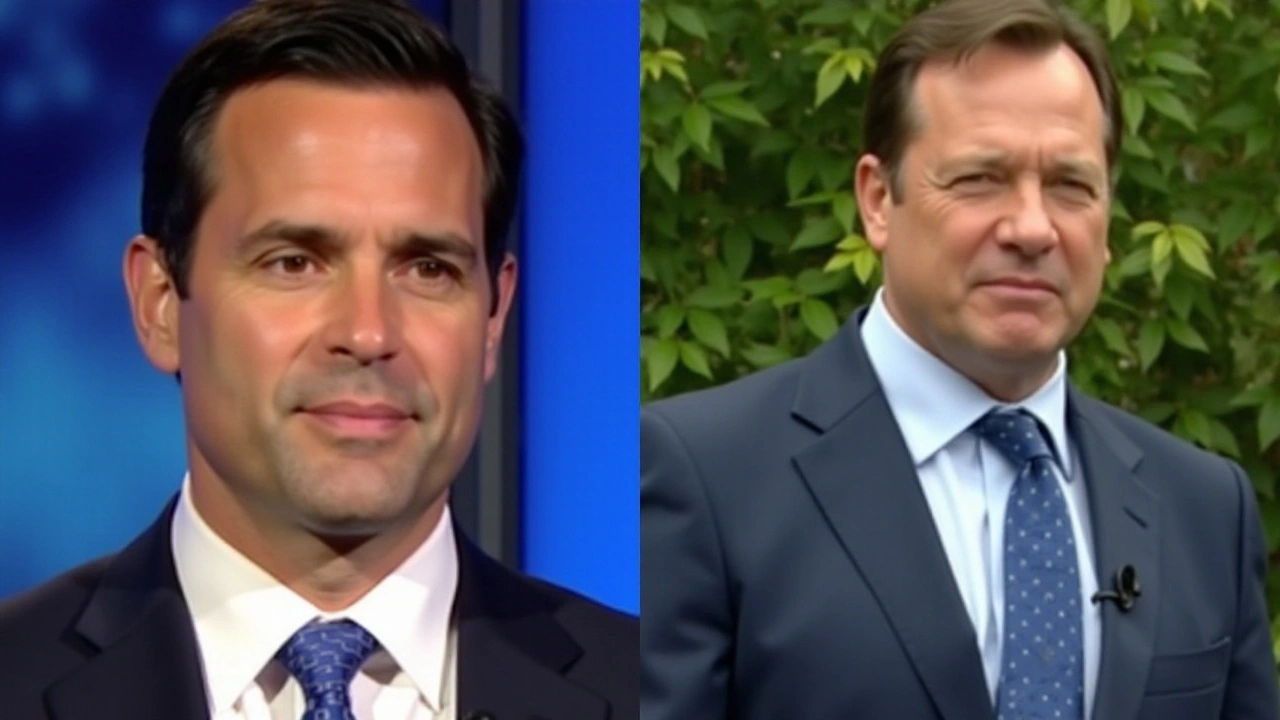Trump's Strategic Appointments for a Firmer Stance on China
In the rapidly shifting landscape of international relations, especially where the United States and China are concerned, former President Donald Trump appears poised to introduce a more confrontational approach. Should he emerge victorious in the 2024 presidential election, Trump is expected to appoint staunch critics of China, Marco Rubio and Mike Waltz, to pivotal roles in his administration. Rubio, the Florida senator known for his strong advocacy of Taiwan and consistent denouncement of Chinese human rights records, is likely to be considered for the positions of Secretary of State or Director of National Intelligence. Meanwhile, Congressman Mike Waltz, who has a decorated military background as a former Green Beret, is being eyed for roles such as Secretary of Defense or National Security Advisor. These selections underscore a pronounced shift towards a hardline policy against China's expanding influence.
Rubio's Fierce Advocacy on Taiwan and Human Rights
Marco Rubio's prospective role signifies more than just a change in personnel; it suggests a profound recalibration of the United States' foreign policy priorities under a new Trump administration. As a prominent advocate for Taiwan, Rubio has continually called for the strengthening of US-Taiwan relations, particularly in light of China's promises to exert more control over the island. His potential leadership at the State Department or National Intelligence would likely prioritize enhancing these ties, despite China's longstanding objections. Rubio's contentious stance on Chinese human rights abuses further highlights his commitment to holding Beijing accountable, suggesting a period of strained diplomatic exchanges should Trump take office again.
Waltz's Military Insights and Hardline Propositions
Mike Waltz brings a robust military perspective to the table, underscoring Trump's intention to militarize diplomatic interactions with China. Waltz's vocal criticism of China's burgeoning military prowess in the Asia-Pacific region aligns with a growing sentiment in Washington aiming to counterbalance China's naval and air force advancements. His historical advocacy for a more aggressive defense posture reflects a potential shift from existing policies aimed at accommodation and compromise. Waltz's militaristic views make him a candidate likely to meet with Republican approval, particularly among those who have long criticized Trump's past handling of China as lacking firmness.
The Broader Context of US-China Relations
The broader context of US-China relations offers a fertile ground for examining these anticipated appointments. Amid escalating tensions over trade disputes, Taiwan, and security concerns in the Asia-Pacific realm, Trump's selection of Rubio and Waltz aligns with a strategic pivot towards containment rather than collaboration. The Biden administration has attempted to maintain channels of communication with China over shared global challenges like climate change and pandemics, while also opposing unfair trade practices and maintaining security commitments in the region. In marked contrast, Trump's previous administration levied tariffs and raised rhetorical stakes against Beijing without equal diplomatic concessions, a legacy that Rubio and Waltz could potentially revive.
Republican Hawks and Their Expectations
The anticipation surrounding these potential appointments is palpable among Republican hawks, who view a tougher stance on China as imperative to retaining American dominance on the global stage. Unlike the diplomatic explorations favored by the current administration, Rubio and Waltz's hardline views satisfy a conservative base that has long clamored for resolute action against perceived Chinese belligerence. The pairing of military acumen with a strong rhetorical stance on human rights could mark a significant transformation in bilateral relations should Trump triumph once more. For skeptics of past policies, this is an opportunity to push for a recalibrated approach where risk-taking meets strategy in confronting China's global ambitions.
Implications for Future US Foreign Policy
As Trump gears up for a potential return to the presidential arena, the choice of Rubio and Waltz represents more than strategic platitudes—it signals a recalibration and potential overhaul in dealing with one of America's foremost competitors. By placing known China critics at the helm of crucial departments, Trump is aligning with an ideological vision that envisages a more confrontational and less conciliatory approach. Industry watchers and political analysts alike will undoubtedly monitor these developments closely, weighing the impacts on not only US-China dynamics but the broader implications for global peace and economic stability. As the world watches, these appointments, if confirmed, could indeed be harbingers of a new era in international relations—one defined by a louder, bolder voice emanating from Washington.















